Sebastiaan De Peuter
Department of Computer Science, Aalto University, Finland
Compositional Sculpting of Iterative Generative Processes
Sep 28, 2023



Abstract:High training costs of generative models and the need to fine-tune them for specific tasks have created a strong interest in model reuse and composition. A key challenge in composing iterative generative processes, such as GFlowNets and diffusion models, is that to realize the desired target distribution, all steps of the generative process need to be coordinated, and satisfy delicate balance conditions. In this work, we propose Compositional Sculpting: a general approach for defining compositions of iterative generative processes. We then introduce a method for sampling from these compositions built on classifier guidance. We showcase ways to accomplish compositional sculpting in both GFlowNets and diffusion models. We highlight two binary operations $\unicode{x2014}$ the harmonic mean ($p_1 \otimes p_2$) and the contrast ($p_1 \unicode{x25D1}\,p_2$) between pairs, and the generalization of these operations to multiple component distributions. We offer empirical results on image and molecular generation tasks.
Zero-Shot Assistance in Novel Decision Problems
Feb 15, 2022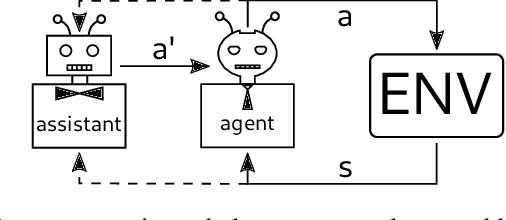

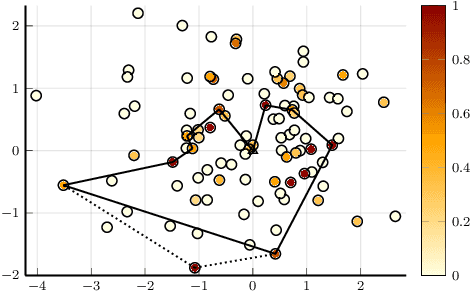

Abstract:We consider the problem of creating assistants that can help agents - often humans - solve novel sequential decision problems, assuming the agent is not able to specify the reward function explicitly to the assistant. Instead of aiming to automate, and act in place of the agent as in current approaches, we give the assistant an advisory role and keep the agent in the loop as the main decision maker. The difficulty is that we must account for potential biases induced by limitations or constraints of the agent which may cause it to seemingly irrationally reject advice. To do this we introduce a novel formalization of assistance that models these biases, allowing the assistant to infer and adapt to them. We then introduce a new method for planning the assistant's advice which can scale to large decision making problems. Finally, we show experimentally that our approach adapts to these agent biases, and results in higher cumulative reward for the agent than automation-based alternatives.
Toward AI Assistants That Let Designers Design
Jul 22, 2021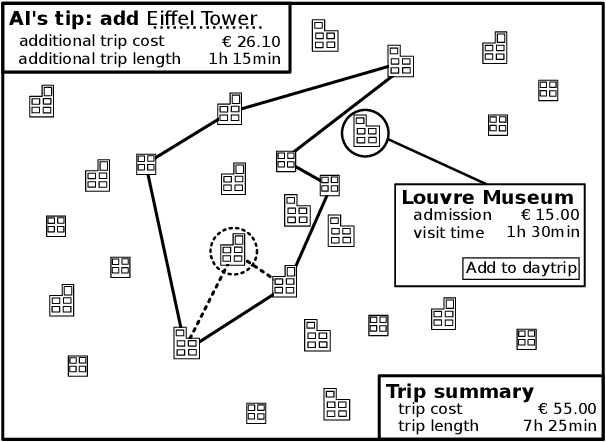
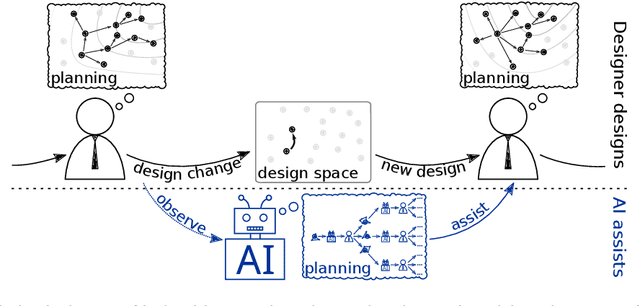
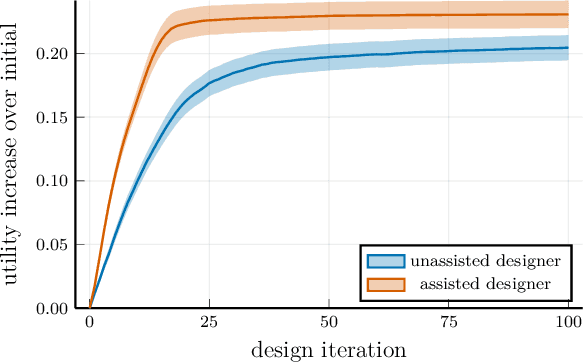
Abstract:AI for supporting designers needs to be rethought. It should aim to cooperate, not automate, by supporting and leveraging the creativity and problem-solving of designers. The challenge for such AI is how to infer designers' goals and then help them without being needlessly disruptive. We present AI-assisted design: a framework for creating such AI, built around generative user models which enable reasoning about designers' goals, reasoning, and capabilities.
 Add to Chrome
Add to Chrome Add to Firefox
Add to Firefox Add to Edge
Add to Edge